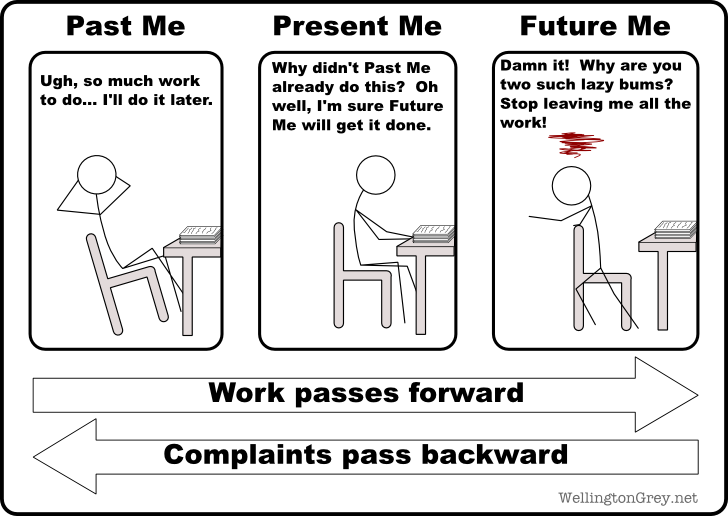Upon reading the title of an Atlantic article, “Can your language influence your spending, eating, and smoking habits?” I was immediately skeptical. I love a Whorfian argument just as much as the next guy (actually, I probably love it much more), but it’s also an easy topic to get carried away with and blown out of proportion. The article reports on a recent paper by Keith Chen in which he looked at languages’ different ways of differentiating the present from the future (or not), and the behaviors that those differences correlated with.
He found that speakers of “futured” languages, like English, in which the present and future are marked grammatically (we say things like, “it IS cold,” vs. “it WILL BE cold”) seem overall to conceptualize the future and present as more different from each other than speakers of languages in which the verb’s grammatical structure is the same for both the present and the future. He claimed that this difference in conceptualization is evident in behaviors including saving money as well as healthy habits, like eating and smoking, as the title suggests. He even controlled for the country that people lived in, since the claim could easily be made that people of a similar culture tend to behave similarly on many of these measures. He found that in countries where different languages are spoken, the language a person speaks is a stronger predictor of his present vs. future behaviors than the country in which he lives (and the culture of that country).
This short video summarizes the Whorfian claim as well as Chen’s specific findings in a really comprehensive manner for those who aren’t as obsessed with linguistic relativity as I am:
If this is true, then shouldn’t speakers of languages who grammatically treat the past and present as the same also distinguish less between the two? Maybe they’re more likely to make decisions based on past experiences, or maybe they hold more grudges? I anticipate one problem with testing this, though, which is that the languages who don’t differentiate between present and future tenses are probably overwhelmingly the same ones that don’t differentiate between past and present? For example, if a person speaks a language in which all tenses are grammatically the same (like Mandarin), Chen’s paper suggests that he might save more money based on his feeling that the present and future are indistinguishable in some senses. But what if this behavior is, in fact, based on a sense that the past and present are also indistinguishable, and since recalling how hard he worked for that money in the past highly influences him not to spend it now? Time is a messy concept, but Chen’s findings seem so cut-and-dry that it definitely deserves more attention.

Image: http://thelaymansanswerstoeverything.com/2008/06/20/diary-of-a-layman-10-spring-2008-past-present-and-future-selves-pt-ii/
And to think that some people think grammar is boring – I bet they don’t think saving money is boring, but the two may not be as disconnected as they at first appear…
